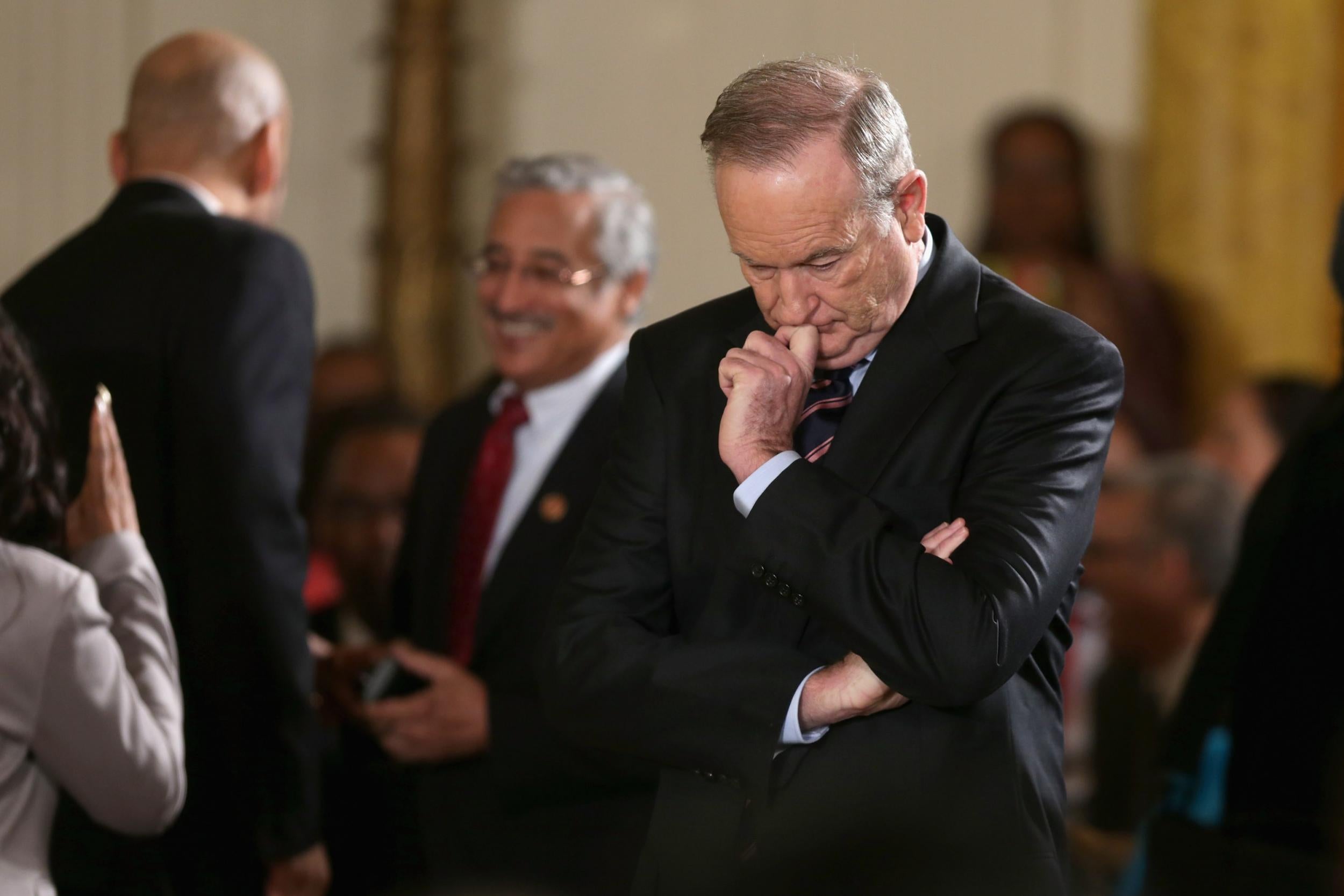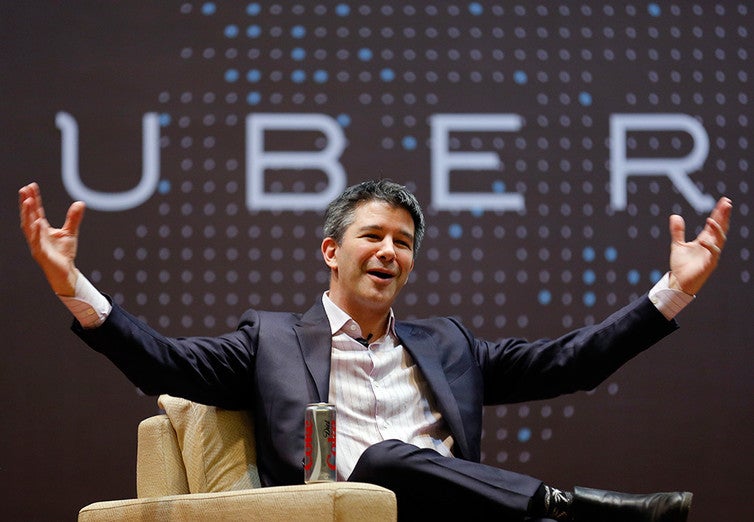Scandals at Uber and Fox show dangers of letting macho cultures run wild
After a long list of recent sexual harassment allegations at some of the world's biggest companies, what do they tell us about these male dominated environments?

Your support helps us to tell the story
From reproductive rights to climate change to Big Tech, The Independent is on the ground when the story is developing. Whether it's investigating the financials of Elon Musk's pro-Trump PAC or producing our latest documentary, 'The A Word', which shines a light on the American women fighting for reproductive rights, we know how important it is to parse out the facts from the messaging.
At such a critical moment in US history, we need reporters on the ground. Your donation allows us to keep sending journalists to speak to both sides of the story.
The Independent is trusted by Americans across the entire political spectrum. And unlike many other quality news outlets, we choose not to lock Americans out of our reporting and analysis with paywalls. We believe quality journalism should be available to everyone, paid for by those who can afford it.
Your support makes all the difference.Most of us have probably seen the video of Uber founder and CEO Travis Kalanick scolding one of his own drivers, cursing and lamenting that “some people don’t like to take responsibility for their own shit.”
Fox News, meanwhile, continues to reel from a cascade of sexual harassment allegations and charges that its corporate culture demeans women, leading to the ouster of founder Roger Ailes and star Bill O’Reilly following an exodus of advertisers.
What do these anecdotes have in common? These are more than just manifestations of men behaving badly. They are expressions of hyper-masculine values emanating from the top and shaping the culture down to the bottom.
I have studied gendered, macho cultures and the role top leaders play in imposing and perpetuating them. Such cultures are harmful to organisations and their employees in many significant ways.
Importance of culture
Corporate culture has been recognised by scholars and executives as a powerful force for shaping the behaviours of employees at all levels. “Culture is not the most important thing,” observed Jim Sinegal, Costco’s co-founder, “it’s the only thing.”
Indeed, high-performance organisational cultures can help propel companies to great heights. A solid strategy and superior products are required, of course. But cultural attributes such as trust, respect and openness to diverse opinions are also important for long-term effectiveness.
Companies as diverse as Google, Zappos and Sun Hydraulics show it can provide significant competitive advantage.
But not all cultures are benevolent. Some can hurt and even destroy a company. Enron, for example, collapsed in 2001 under the weight of a culture that prized “making numbers” over long-term performance, with a kind of ruthless lawlessness that emanated from the very top.
A faulty corporate culture can encourage short-term advantage at the cost of looming catastrophes, stifle innovation, foster distrust or fuel excessive risk-taking.
In summary: “Culture trumps everything.”

Who wants to be a macho man?
An especially damaging subset of corporate culture relates to the over-emphasis on macho values.
It wasn’t too long ago that every CEO of a Fortune 500 company was a man. While things have improved a lot since the era depicted so dramatically in Mad Men, the macho cultures on display at Uber and Fox powerfully illustrate that it’s still a “man’s world” in some companies.
In such environments, stereotypically masculine characteristics such as assertiveness, top-down control, overconfidence, daring and competitiveness are held to be attributes of top performance, valued above all others. Winning is pursued as its own end rather than as an outcome of effectiveness.
Conversely, stereotypically feminine characteristics – such as being helpful, kind, sympathetic and nurturing – are diminished as less effective. Despite their powerful contribution to the implementation of a company’s strategy, these values tend to be unrecognised and unrewarded in a macho culture.
Extensive research into hyper-masculine culture has uncovered unsurprising but nonetheless disturbing patterns of discrimination against women. Uber’s culture provides a dramatic example of this. Offensive sexual references by the boss, reports of sexual harassment within the company and meetings at strip clubs forced Uber to engage an external investigator to uncover just how widespread this macho dysfunction has spread.
In such cultures, the contribution made by women to the strategic functioning of the company is devalued as “soft,” and promotions become systematically more unlikely.
Denied equal opportunity, women with options may simply leave. Those who stay often curtail their ambitions, depriving organisations of an indispensable resource, particularly at the higher levels of the executive hierarchy. Men may also flee such a macho culture, as a recent string of executive departures from Uber suggests.
The paternalistic, rigid nature of macho cultures can manifest itself in a more general intolerance of differences and a rejection of groups labelled as “outsiders” by the white males who dominate. For example, they are more likely to target both sexual orientation and racial minorities, something that appeared to be the case at Fox as well.
Beyond damaging morale and leading to the departure of talent, such a reckless disregard for boundaries also threatens the long-term viability of a company, placing it at financial and legal risk.

Where culture comes from
Those of us who study leadership and culture have long recognised that the values, behaviours and decisions of an organisation’s leaders exert the most powerful force in shaping cultural values – that is, what behaviours they reward and punish; where they assign the company’s financial assets; and, perhaps most importantly, how they behave themselves.
When our leaders are running around berating and sexually harassing their employees, we clearly have a problem. But what can we do about it when the man at the very top of our society dismisses women opponents based on their looks, rates women on their sexual attractiveness and brags about assaulting them?
This is what begins to normalise such abhorrent behaviours in our business organisations and broader society. Everyone must be held accountable, of course, but we can start by acknowledging the special role and particular responsibility of those who sit at the top.
Originally published on The Conversation. Bert Spector is a Professor of International Business and Strategy at Northeastern University in Boston, MA
Join our commenting forum
Join thought-provoking conversations, follow other Independent readers and see their replies
Comments